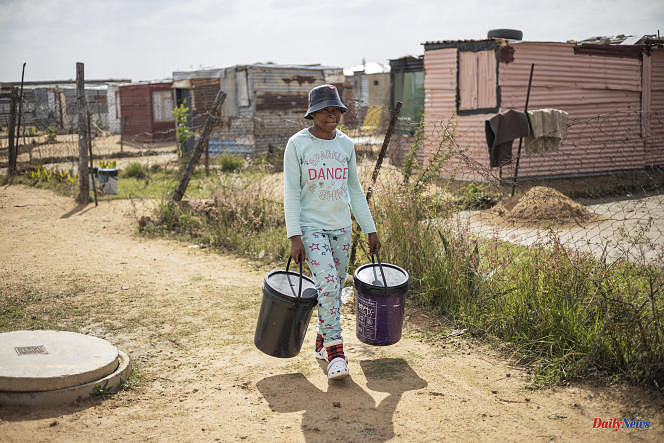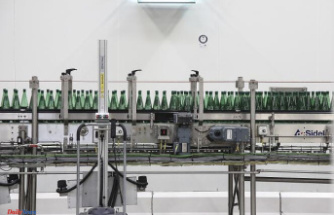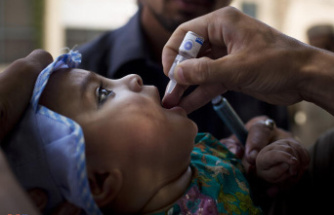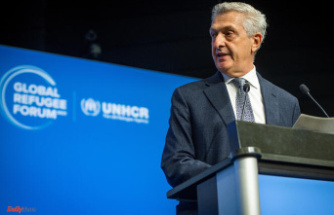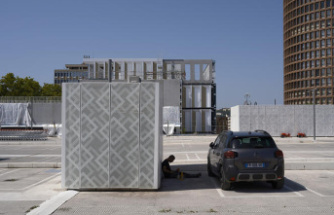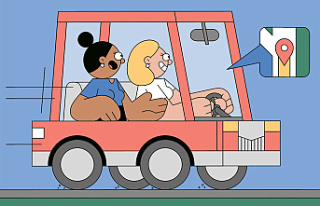The family gathered in this garden of an underprivileged district of a small South African town, near Pretoria, is in mourning: a loved one, among the fifteen victims of the epidemic counted in the country, died of cholera but also lack of care.
South Africa recorded its first death from the disease in February. Mozambique and neighboring Malawi are the countries in the world most seriously affected this year by the scourge, according to the United Nations. Cholera, usually caused by the absorption of water or food contaminated with bacteria, has been on the rise on the continent since 2021 and one billion people in 43 countries are at risk, the UN warned this week. South Africa now has several cases.
In Hammanskraal, about 50 km north of the capital, Kagiso Sadika, 37, says he has not drunk unsafe tap water for as long as he can remember. The dead being watched over is his cousin. "Everyone has the right to have access to clean water," he storms, describing the brown stream that usually comes out of the taps in the area. Sitting cross-legged under a lemon tree and visibly shaken, he told AFP that he hoped his cousin "did not die in vain".
The latter suffered from continuous diarrhea and vomiting, says Kagiso Sadika. He quickly weakened, no longer having the strength to walk, bathe or even sleep. He died within a week. Taken to the nearest hospital, Jubilee Hospital, Michael Sadika was not taken care of: not enough beds, lack of staff. Transported a second time, he finally died in the emergency room. He was 53 years old.
“Nurses only have two hands. And when there aren't enough of them, patients suffer and some end up dying," acknowledged Mogomotsi Seleke, spokesperson for the healthcare workers' union (Denosa), interviewed by AFP outside Jubilee Hospital.
Tanker trucks
Of 34 infected people, fifteen have died since Friday. The infection shows "a very high mortality rate", underlined during a press conference on Tuesday, May 23, Dr. Sandile Buthelezi, director general at the Ministry of Health.
The municipality of Pretoria, on which Hammanskraal depends, urged residents not to drink tap water, promising the arrival of tankers. But according to the inhabitants, the passages are only done once or twice a week. "No water, no house... We have nothing," 61-year-old Rosa Kovani cries out, walking down a dirt road in a nearby township to fetch water from one of these tankers. A baby hanging on her back and a bucket in her hand, she does not believe that she will one day have running and drinking water in her sheet metal shack.
Many of them here spend their afternoons sitting in front of their houses. Unemployment is endemic in the country and is close to 35%. And behind the thin barbed wire fences protecting the modest properties, anger swells. The deadly epidemic is due to malfunctioning wastewater treatment, a lack of infrastructure and the corruption of local elected officials, denounce residents. The Ministry of Water and Sanitation has announced the opening of an investigation into the water problems in Hammanskraal. "It's a problem that could have been solved a long time ago," Kagiso Sadika said.
With the water crisis, some businesses have started selling purified water. But many cannot afford the precious bottles.

